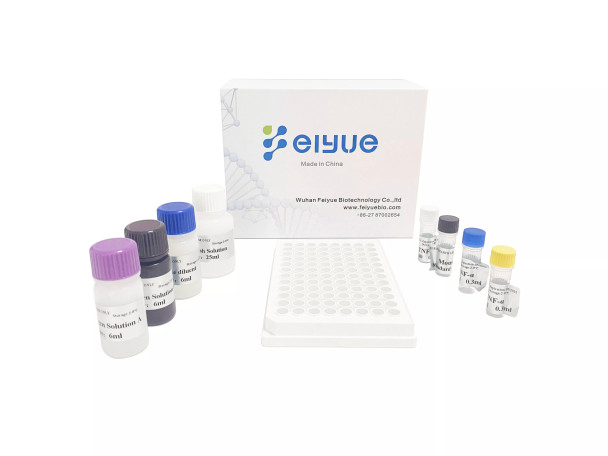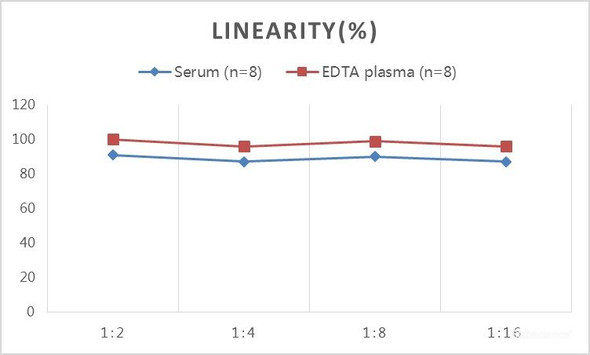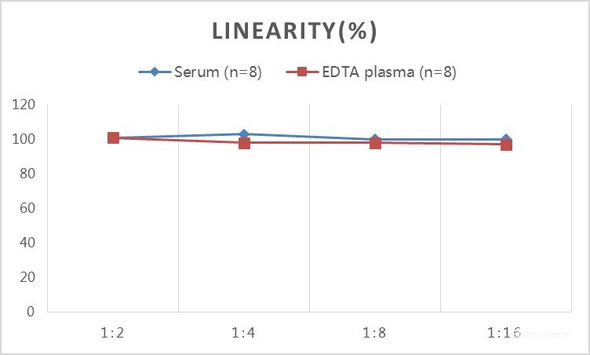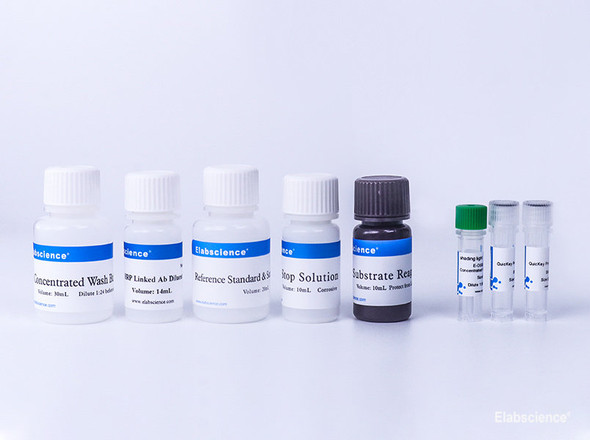Description
Pg(Progesterone) ELISA Kit Basic Information
|
Product Name |
Pg(Progesterone) ELISA Kit |
|
Catalog NO. |
FY-EU4198 |
|
Alias |
Pg ELISA Kit |
|
Detection Method |
Competitive ELISA, Coated with Antigen |
|
Application |
Pg ELISA Kit allows for the in vitro quantitative determination of Pg concentrations in serum, plasma, tissue homogenates and other biological fluids. |
|
Size |
48T, 96T |
|
Storage |
2-8 ℃ for 6 months |
|
Sensitivity |
<0.188ng/ml |
|
Species |
Universal |
|
Uniprot |
|
|
CV %() |
Intra-Assay: CV<8% |
|
Note |
For Research Use Only |
Feiyue's Pg(Progesterone) ELISA Kit
is an ELISA reagent for detection of Pg(Progesterone) in serum, plasma or cell with sensitivity, specificity and consistency.
Pg(Progesterone) Introduction
Progestogens, also sometimes written progestagens or gestagens,[1] are a class of steroid hormones that bind to and activate the progesterone receptor (PR).[2][3] Progesterone is the major and most important progestogen in the body. The progestogens are named for their function in maintaining pregnancy (i.e., progestational), although they are also present at other phases of the estrous and menstrual cycles.[2][3] The progestogens are one of three types of sex hormones, the others being estrogens like estradiol and androgens/anabolic steroids like testosterone. In addition, they are one of the five major classes of steroid hormones, the others being the androgens, estrogens, glucocorticoids, and mineralocorticoids, as well as the neurosteroids. All endogenous progestogens are characterized by their basic 21-carbon skeleton, called a pregnane skeleton (C21). In similar manner, the estrogens possess an estrane skeleton (C18), and androgens, an androstane skeleton (C19).
Pg(Progesterone) ELISA Kit Test method
This kit was based on Competitive-ELISA detection method. The microtiter plate provided in this kit has been pre-coated with target. During the reaction, target in the sample or standard competes with a fixed amount of target on the solid phase supporter for sites on the Biotinylated Detection Antibody specific to target. Excess conjugate and unbound sample or standard are washed from the plate, and HRP-Streptavidin (SABC) is added to each microplate well and incubated. Then TMB substrate solution is added to each well. The enzyme-substrate reaction is terminated by the addition of a sulphuric acid solution and the color change is measured spectrophotometrically at a wavelength of 450nm. The concentration of target in the samples is then determined by comparing the OD of the samples to the standard curve.
Reference:
1, Nanocurcumin alleviates insulin resistance and pancreatic deficits in polycystic ovary syndrome rats: Insights on PI3K/AkT/mTOR and TNF-α modulations NZ Abuelezz,Life Sciences,2020
2, Influence of malignant growth and chronic neurogenic pain on neurosteroid levels in rat brain EM Frantsiyants,Biomeditsinskaya Khimiya,2020
3, Anxiolytic and Anti‑depressive Like Effects of Translocator Protein (18 kDa) Ligand YL‑IPA08 in a Rat Model of Postpartum Depression P Ren,Neurochemical Research,2020
Additional Information
Size: |
96T |
Reactivity: |
Universal |
Assay range: |
0.313-20ng/ml |
Sensitivity: |
0.188ng/ml |














